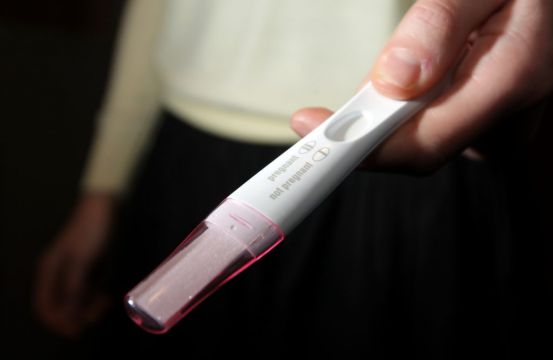Delaying pregnancy and a large information gap around conception is having an impact on the fertility of younger people, a new study shows.
One of the research's notable finding is that a large cohort of younger people, namely students, are not aware they should seek medical help if they have trouble conceiving for more than a year.
The study, 'Knowledge on impact of lifestyle and demographic factors on fertility', was carried out by the National Perinatal Epidemiology Centre at Cork University Maternity Hospital. The study was published in this month’s edition of the Irish Medical Journal.
It showed 44 per cent of students, out of a total 480 participants, had large knowledge gaps, notably regarding perception of fertility, Assisted Reproductive Techniques (ART), and associated success rates.
Fifty-three per cent of those attending the centre correctly believed assistance should be sought after one year of trying to conceive for individuals under 35, 70.6 per cent of whom were female and 29.4 per cent were male.
However, a large number of students incorrectly believed a woman’s overall health and fitness level is a better indicator of her current fertility status than her age.
Just over 22 per cent believed using assisted reproductive technologies allows most women to have a baby with their own eggs at any age, while 23.7 per cent thought women in their 40s undergoing fertility treatments would have at least a 50 per cent chance of having a baby using her own eggs.
Comparisons were made between university students and outpatient attendees at a tertiary maternity unit in order to identify any knowledge gaps between the two groups in order to provide targeted education at different stages of life.
Further comparisons were made between students from the college of medicine and health and other courses to ascertain if medical trainees have adequate knowledge of fertility or if further training is required.
Delayed pregnancy
According to data from the Central Statistics Office, the average age of mothers giving birth in 2021 was 33.3 years, the highest ever recorded since these figures were first collated in 1955. The number of births to women aged 40 and over has also risen by one-third in the space of a decade.
The study's co-authors said their findings provide “insight into the knowledge and awareness of fertility and ART in an Irish population”.
The research indicates people have inadequate awareness of fertility and the consequences of delayed pregnancies.
The age of a woman's first pregnancy and the number of pregnancies have steadily risen since the 1980s.
In Ireland, from 1975 to 2015, the average age of first time mothers increased by 7.5 years among married women and 6.3 years for those who were unmarried.
This delay is associated with increased infertility rates and a rising need for Assisted Reproductive Techniques (ART).
Advanced maternal age and use of ARTs increase the risk of adverse maternal and fetal outcomes and the risk of permanent childlessness, research indicates.
Delayed childbearing cannot be attributed to one factor but a combination of societal, economic, and personal reasons, the study noted.
The authors added: “Therefore, it is imperative to reveal what knowledge our population has, paying particular attention to students’ knowledge to address gaps in knowledge.
“Over the last decade, studies have reported a definite gap in knowledge regarding fertility risk factors, namely age-related fertility decline.”
Lifestyle
The study also found that the majority of participants correctly reported that lifestyle factors influence fertility.
Over 95 per cent believed smoking and alcohol negatively impact a person's ability to conceive, and more than 92 per cent believed weight and diet impact fertility, while 61 per cent felt fertility supplements work.
Only 29 per cent correctly believed a man’s age is related to an increased risk of birth defects, and 28 per cent correctly reported that children born to fathers over the age of 45 have higher rates of learning disabilities, autism, schizophrenia, and some forms of cancer.
Just under one quarter correctly estimated the total cost of one cycle of In-Vitro Fertilisation (IVF) is under €6,000, with 75 per cent stating they believe IVF is between 30-60 per cent effective.
A total of 48 per cent correctly believed assistance should be sought after one year of trying to conceive for people under 35, and after six months of trying to conceive for those over 35.
In conclusion, the authors said: “While it is reassuring that many have a significant level of knowledge, there are evident gaps to be addressed.
“These include the differing views of the impact age can have on fertility and subsequent ART with many overestimating their fertility.
“Identifying these areas allows for adequate measures to address and tackle the lack of knowledge, enabling informed decision-making and timely intervention if necessary. Additionally, our findings provide a knowledge base for improved fertility services to be introduced.”







